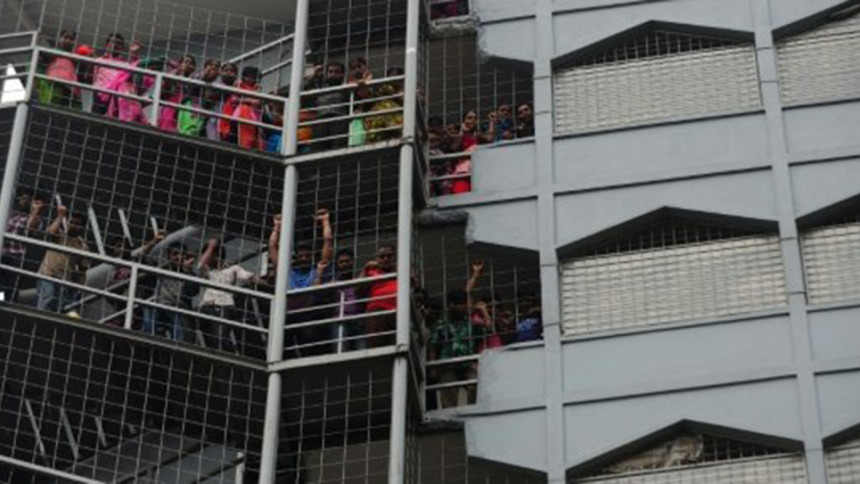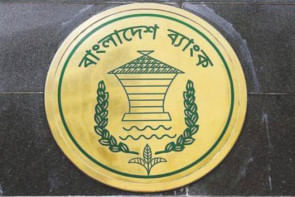RMG: 49.5% remediation works completed

A 49.5 percent remediation works in the factories under the Alliance for Bangladesh Worker Safety (Alliance) have been completed, as recommended by the experts to ensure workplace safety, according to a report by the Alliance.
A total of 24 factories have fully completed the remediation works as the Alliance has entered into its third year, the Alliance progress report said.
The inspection agency released its progress report globally today.
Alliance, a platform of 28-North American retailers and brands for factory inspection and remediation in Bangladesh will function here up to June 2018.
According to the report, due to progress in the remediation the incidence of serious fires in the garment factories has dropped significantly since 2012.
The Bangladesh Fire Service & Civil Defence states that the number of fires in the garment factories fell by almost 90 percent between 2012 and 2015.
There were 250 garment factory fires in Bangladesh in 2012 — with an average of five fires per week which took 115 lives. Last year, there were just 30 such fires, none of which resulted in death, the report said.
“While the number of ready-made garment factories sent to the review panel or suspended is small (5 percent out of 677 active factories), all Alliance factories require some form of remediation to fully meet our safety standards,” the report also mentioned.
During the inspection, the Alliance recommend for the complete closure of factories that demonstrated structural deficiencies that we deem to be critical.
The decision of full or partial closure of any factory has to be based on the recommendation by the review panel, which is constituted with the representatives of Alliance, government officials, rights groups and garment makers’ associations.
The Alliance said following the inspection of nearly 700 factories — that it has recommended a total of 36 factories to the review panel for closure.
Of these, one has relocated to a new structure and 13 are actively undergoing repair; the remaining 22 have either been closed permanently or suspended.
“We have also started cutting ties with factories that are not making adequate progress on remediation. To date, we have suspended 77 factories — and their status is publicly reported,” the Alliance said.
The Alliance has set up a helpline for the workers in 643 factories where a total of 8,66,702 workers are employed. So far 55,544 calls have been received by the helpline. A total of 6,500 displaced workers have been compensated by the Alliance so far.
The Alliance has trained 1.2 million workers and re-trained 4,20,000 workers on fire safety and 20,000 security guards on evacuation training.
“Progress remedying factory safety issues is significant, but remains slower than projected,” the Alliance report said.
Factors such as political unrest, a lack of qualified engineers, the time consuming yet required import of vital safety equipment not available in Bangladesh, and natural disasters such as the 2014 earthquake in neighboring Nepal have all imposed delays to the remediation process.
Another factor is the real need to amend our protocols to address the realities on the ground when new challenges arise.
For example, we did not previously require Alliance approval of factory documentation of hydrant and sprinkler design.
However, during our remediation verification visits, we came to learn that many systems were not being designed or installed correctly.
As an example, a fire occurred on February 23, 2016 in the Pretty Sweaters Ltd factory, which had just entered the Alliance process, but had previously done some remediation work.
Thankfully, there were no casualties as a result of this fire — the factory had improperly installed a poorly designed sprinkler system before coming on-line with the Alliance.
Fortunately, the fire doors and hydrants had been remediated properly and were able to contain the fire long enough to allow the fire service to arrive.
“This case reinforces our requirement that factories get design approval from our team before beginning physical remediation,” the report said.


 For all latest news, follow The Daily Star's Google News channel.
For all latest news, follow The Daily Star's Google News channel. 








Comments